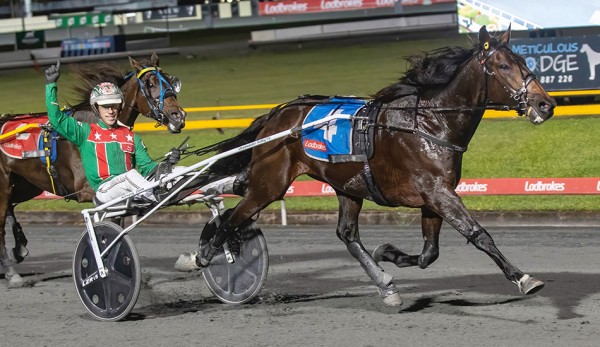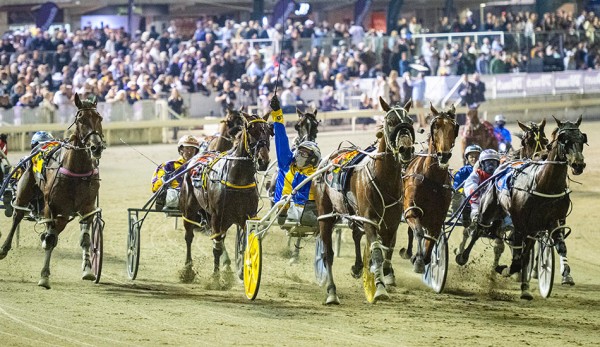By Joshua Smith, Harness News Desk
As the season comes towards an end this week many people will take the opportunity to reflect on the year gone by – the successes they achieved, opportunities lost, and difficulties faced.
For some it was a season to remember and for others it was a season to forget.
Although the 2019/2020 season was curtailed by the COVID-19 pandemic, it wasn’t short of memorable moments.
In December, the Inter Dominion series returned to New Zealand shores for the first time in nearly a decade and trainers Mark Purdon and Natalie Rasmussen continued to show their dominance in the sport by taking out both the Pacing and Trotting Finals, with Ultimate Sniper and Winterfell respectively.
In doing so they became only the second trainers in history to win both finals in a single year, with Charlie Hunter achieving the feat in 1975 with Young Quinn and Castleton’s Pride.
Fittingly, Hunter was presented with an award for distinguished service by the Inter Dominion Event Committee at a function leading into the series.
“It was a nice surprise. You don’t do the things you do in your life looking for acclaim and awards, but it is very nice when you are recognised, particularly from an Australasian viewpoint,” Hunter said at the time.
“I have enjoyed everything I have done in harness racing, whether it be administration, training, or driving.”
While 2019 finished on a high for many, the start of 2020 couldn’t have been more polarising.
Just two days into the new year the racing community’s heart sunk at the sight of champion reinsman Ricky May collapsing in the sulky mid-race at Omakau.
While the revered horseman came close to death that day, he made a miraculous recovery and gave the sport one of its highlights of the season when he made a winning return to the cart in June.
While there were plenty of highs and lows on the track, the season will be remembered in history for something that happened off it – COVID-19.
The global pandemic has wreaked havoc around the world and both New Zealand and harness racing were not immune.
The country went into a near two-month lockdown, forcing a hiatus for racing, and changing many parts of the sport forever.
As a knock-on effect of the fiscal challenges faced by a lack of betting turnover, RITA (Racing Industry Transition Agency) made some radical cuts to its expenditure in order to save more than $10 million, highlighted by the redundancies of more than 30 percent of its staff.
The broadcasting offering on TAB Trackside was subsequently scaled back, with the lack of on course presenters being a notable change.
Racing clubs have been quick to fill that void, taking on the responsibility of creating post and preview content on social media, with the likes of Stacey White in the south and Jo Stevens in the north keeping punters up-to-date.
Many clubs also faced uncertain times, most notably the Central Districts who at one point were staring down the barrel of extinction within the sport.
However, the region has been given a reprieve and were allocated a dozen meetings in the 2020/21 racing calendar.
The loss of the sport in the region would have been a real shame. While it is home to only a handful of trainers, plenty of people have been attracted to the sport through live racing in the area.
As a kid I remember watching Blossom Lady lead out the Palmerstonian Classic field the year she retired from racing, her son Mister DG kick-off his career with local trainer Stephen Doody before going on to Group One glory for Tim Butt, and heading along to watch Yulestar at the Palmerston North workouts in the lead-up to his New Zealand Cup victory.
It is those moments that stick with you and get people hooked on the sport. While you can view races on a screen, it only engages two senses.
There is nothing like live racing – the sight, smell, and touch of the horse, the sound of hooves coming down the straight, the taste of overcooked and overpriced chips from the food truck – they are experiences you just can’t have on the couch at home.
Like many other industries, racing will be forced to adapt to a post-COVID world, and it is up to the sport to make sure it remains relevant.
While the racing industry will continue to face its challenges, change brings about opportunity, and in the 2020/21 season I am picking there will be plenty of that.

